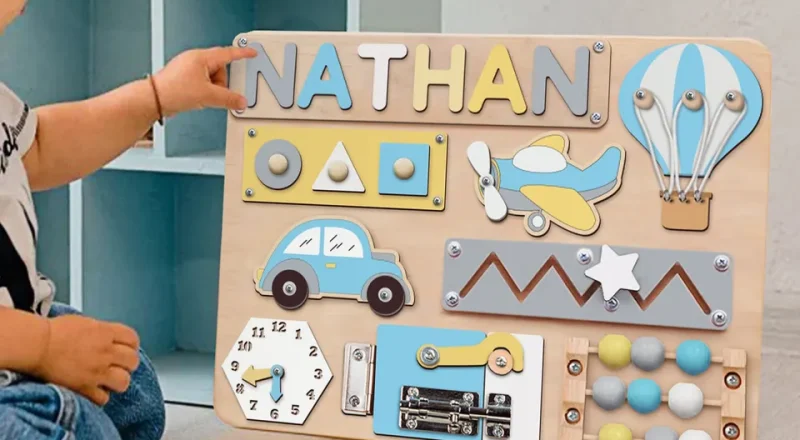Montessori Toys for 1 year olds education emphasizes hands-on learning and child-led exploration, making it an excellent approach for nurturing the development of young children. For 1-year-olds, Montessori toys offer engaging, educational experiences that foster growth in various developmental areas. In this blog post, we’ll explore the benefits of Montessori toys for toddlers and recommend some top options to consider.
The Importance of Play in Development
At the age of 1, children are naturally curious and eager to explore the world around them. Play is not just a source of entertainment; it’s a crucial part of their development. Through play, children develop fine and gross motor skills, cognitive abilities, problem-solving skills, and social-emotional growth. Montessori toys are specifically designed to support these developmental milestones while encouraging independence and creativity.
Key Benefits of Montessori Toys
- Encourages Independence: Montessori toys are designed for self-directed learning, allowing children to explore at their own pace. This fosters a sense of independence and self-confidence as they learn to solve problems and manipulate objects.
- Promotes Sensory Exploration: Many Montessori toys incorporate various textures, colors, and shapes, stimulating a child’s senses. This sensory exploration is vital for cognitive development, helping children learn about their environment.
- Supports Fine Motor Skills: Toys that require grasping, stacking, or sorting help develop fine motor skills, which are essential for tasks like writing and self-feeding later on.
- Fosters Creativity and Imagination: Open-ended toys encourage creative play, allowing children to use their imagination and think outside the box.
- Encourages Social Interaction: Many Montessori toys can be played with alone or in groups, promoting social skills and teamwork when children engage with peers or caregivers.
Recommended Montessori Toys for 1-Year-Olds
Here are some excellent Montessori toy options for 1-year-olds that embody the principles of Montessori education:
1. Stacking Toys
Stacking toys, such as wooden blocks or rings, help develop hand-eye coordination and fine motor skills. Children learn to balance and understand spatial relationships as they stack different shapes and sizes.
2. Shape Sorters
Shape sorters are classic Montessori toys that encourage problem-solving skills. As children fit shapes into corresponding holes, they learn about different geometric forms and develop critical thinking.
3. Sensory Balls
Sensory balls with various textures and sizes provide tactile stimulation. These toys encourage crawling and gripping, promoting gross motor development as babies explore and engage their senses.
4. Wooden Puzzles
Simple wooden puzzles with large pieces are perfect for 1-year-olds. They help develop fine motor skills, shape recognition, and problem-solving abilities while being engaging and visually appealing.
5. Nesting and Stacking Cups
Nesting and stacking cups allow for imaginative play and can be used in various ways, from stacking to filling with sand or water. They promote understanding of size, balance, and spatial awareness.
6. Musical Instruments
Simple musical instruments like shakers or xylophones foster creativity and auditory development. They encourage exploration of sound and rhythm, enhancing sensory experiences.
7. Soft Fabric Books
Books made from soft fabric are perfect for little hands to explore. They promote early literacy and provide opportunities for sensory exploration through different textures and colors.
8. Push and Pull Toys
Toys that can be pushed or pulled along encourage walking and gross motor skills. They provide stability as children learn to move and explore their surroundings.
